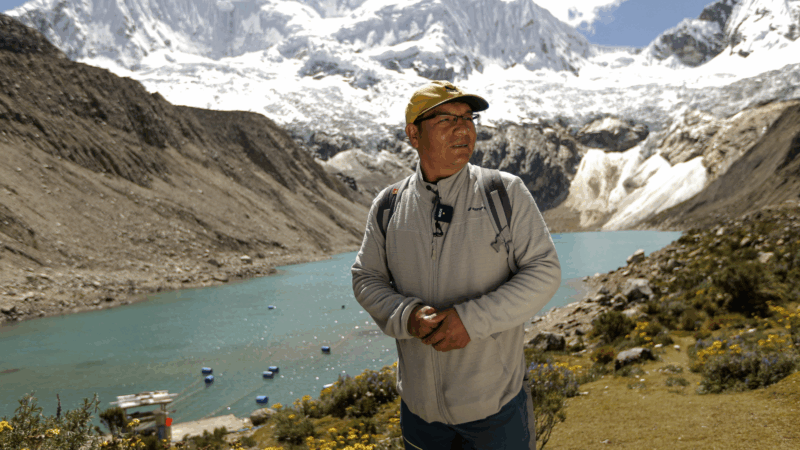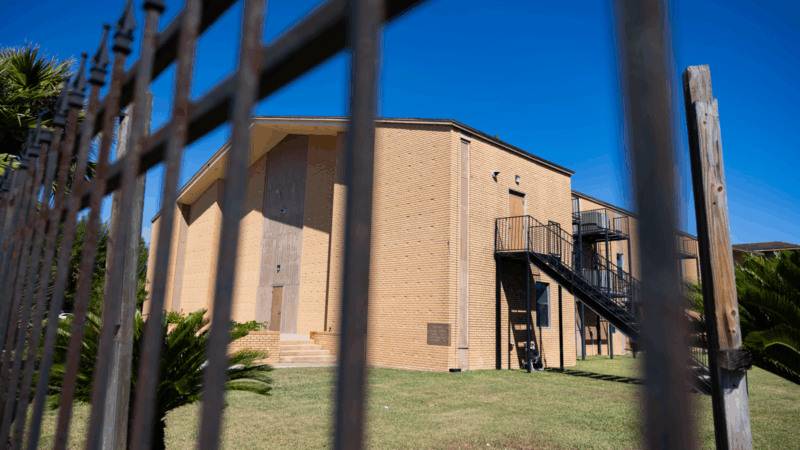Peruvian farmer loses landmark climate case against German energy giant
LIMA, Peru — A Peruvian farmer and mountain guide has lost a landmark climate change lawsuit against one of Europe’s largest power companies.
Saúl Luciano Lliuya, who lives in a city in the central Ancash region, in the heart of the Andes, sued RWE, one of Europe’s largest emitters of greenhouse gases, over the risk of flooding to his home from a glacial lake swollen by climate change. Although RWE has never operated in Peru, Luciano Lliuya argued the company’s emissions contributed to the melting glaciers threatening his city.
But a court in Hamm, in northwestern Germany, ruled that the probability of the lake bursting its banks and devastating his home and the homes of some 50,000 other people in the area was too small for RWE to be held liable. It also barred him from appealing the verdict.
The ruling brings to an end a decade-long lawsuit in which Luciano Lliuya, supported by environmental group Germanwatch, had sought roughly $18,000 from RWE to pay for 0.5% of the cost of building a dyke to protect his home and the homes of his neighbors – the percentage equal to the proportion of RWA’s total historic carbon emissions according to Germanwatch.
The company is now moving quickly into renewable energy and vows to become carbon neutral by 2040. But its power plants have been running on coal for more than a century.
Germanwatch warned that Lake Palcacocha had swollen to more than 30 times its historic volume and could overflow catastrophically in the event of an avalanche.
Ultimately, the court ruled that the probability of that happening was just over 1% in the next 30 years, below the threshold under German law for RWE to be found liable.
The German energy giant had argued that the issue of climate change should be resolved by governments and not in a court. In a statement after the verdict on Wednesday, RWE said a win against them would have had “unforeseeable consequences for Germany as an industrial location, because ultimately claims could be asserted against any German company anywhere in the world for damage caused by climate change.”
This is just one of a wave of climate litigation cases against big industry and governments in recent years. Germanwatch is still claiming a win. It says that the court ruled on the specific risk of Lake Palcacocha bursting its banks. But, by allowing the case to proceed through the German court system for a decade, had accepted the broader principle that climate change plaintiffs from around the world can use German property laws to sue German companies over their carbon emissions.
Petra Minnerop, an expert in international climate law at the United Kingdom’s Durham University, who was not involved in the case, broadly backed Germanwatch’s interpretation. “It was only a factual question, not a legal one,” she told NPR, meaning that the door remained open for similar litigation in Germany.
Voting nears to a close in Texas primary that may be crucial to control of the Senate
The GOP and Democratic primaries mark a potential litmus test for what direction base voters want their parties to go ahead of midterm elections this fall that will determine power in Congress.
Pregnant migrant girls are being sent to a Texas shelter flagged as medically risky
Government officials and advocates for the children worry the goal is to concentrate them in Texas, where abortion is banned.
The 2026 World Cup faces big challenges with only 100 days to go
Will Iran compete? Will violence in Mexico flare up? And what about funding for host cities in the U.S.? With only 100 days left before it beings, the 2026 World Cup in North America is facing a lot of uncertainty.
A glimpse of Iran, through the eyes of its artists and journalists
Understanding one of the world's oldest civilizations can't be achieved through a single film or book. But recent works of literature, journalism, music and film by Iranians are a powerful starting point.
Mitski comes undone
She may be indie rock's queen of precisely rendered emotion, but on Mitski's latest album, Nothing's About to Happen to Me, warped perspectives, questionable motives and possible hauntings abound.
This quiet epic is the top-grossing Japanese live action film of all time
The Oscar-nominated Kokuho tells a compelling story about friendship, the weight of history and the torturous road to becoming a star in Japan's Kabuki theater.







